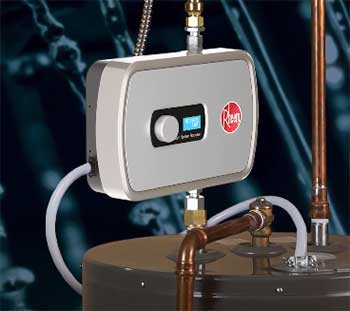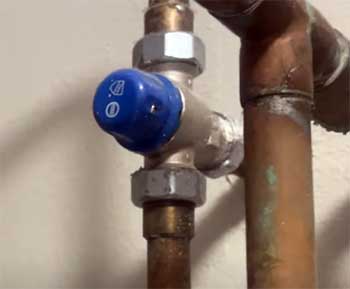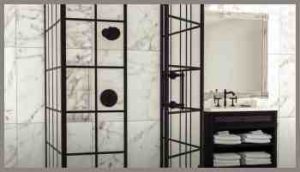When you’re in the world of water heaters, two terms might keep popping up: water heater booster and mixing valve. It might seem like techno-babble, but they have the potential to upgrade your hot water experience tremendously.
A Brief Comparison Table
| Features | Water Heater Booster | Mixing Valve |
| Purpose | Enhances the capacity of your water heater | Regulates the temperature of the hot water output |
| Pros | 1. Increases hot water supply 2. Higher energy efficiency 3. Compact and space-saving | 1. Maintains a steady, safe water temperature 2. Increases effective capacity of water heater 3. Enhances safety to prevent scalding |
| Cons | 1. Higher initial cost 2. Requires frequent maintenance 3. Compatibility issues with some water heaters | 1. Installation cost 2. Requires regular maintenance |
| Best Suited For | Large households with high hot water demand | Households concerned about scalding, especially those with children or elderly family members |
The Water Heater Booster: An Extra Punch

A water heater booster, as its name suggests, works by boosting your water heater’s capacity.
Imagine having a tank that runs out too soon, leaving you in a cold shower.
Unpleasant, right?
That’s where a water heater booster steps in.
It integrates with your existing heater, providing up to 45% more hot water.
The Upside of Using a Water Heater Booster
Water heater boosters have some compelling advantages:
- Higher Efficiency: Boosters use advanced heat transfer technology to extract as much heat as possible from the combustion gas. This leads to lower energy consumption and, ultimately, lower utility bills.
- Enhanced Capacity: The additional hot water capacity can be a real boon, especially in households where hot water demand is high.
- Space Saving: Boosters are compact devices that can be added to your existing water heater setup without much hassle.
Also Read: Differences Between Heat Hog And Mr. Heater.
The Downside of Water Heater Boosters
Like everything else, water heater boosters are not without drawbacks:
- Initial Cost: Boosters can be expensive to install, particularly if you’re upgrading an existing system.
- Maintenance Needs: They may require more frequent maintenance compared to traditional water heaters.
- Compatibility: Not all water heaters may be compatible with booster technology.
The Mixing Valve: Perfectly Balancing Your Hot Water
A mixing valve, on the other hand, is a device designed to mix cold water with hot water from your heater, providing a steady, safe water temperature at your taps or shower heads.
The Benefits of a Mixing Valve
The perks of integrating a mixing valve into your water system are:
- Safety: Mixing valves can prevent accidental scalding by ensuring that the hot water reaching your taps is at a safe temperature.
- Consistency: They provide a constant, comfortable temperature, regardless of variations in the hot and cold water supply.
- Efficiency: By allowing the water heater to store hot water at a higher temperature, mixing valves can also boost the effective capacity of the tank.
The Pitfalls of a Mixing Valve
Despite their benefits, mixing valves have a few potential drawbacks:
- Installation Cost: There can be a cost associated with the installation of a mixing valve, especially if retrofitting an existing system.
- Maintenance: They require regular maintenance to ensure that they’re functioning properly.
Analyzing Water Heater Booster And Mixing Valve

While both devices serve to enhance your water heating system, they do so in different ways.
A booster directly increases the amount of hot water available, while a mixing valve ensures the water delivered to your faucets is at a safe and comfortable temperature.
Ultimately, your choice between a water heater booster and a mixing valve would depend on your specific needs.
If you constantly run out of hot water, a booster may be the right solution.
On the other hand, if you have small children or elderly family members and are concerned about scalding, a mixing valve would be a better choice.
A Closer Look At Water Heater Booster
Water heater boosters are often considered a fantastic solution for those who need more hot water than their existing heaters can deliver.
Whether you have a big family, a luxurious soaking tub, or simply a house with high hot water demand, a booster can be a game-changer.
These nifty devices ‘boost’ the heater’s capacity by superheating the stored water, providing extra gallons of hot water at the ready. So when you find yourself in a freezing shower, a booster can come to your rescue.
Moreover, by operating in energy-saving mode, these boosters can help decrease your electricity or gas consumption, resulting in lower utility bills.
But every silver lining has a cloud. The high initial cost of water heater boosters might be a deterrent for some, and they might need more frequent maintenance than conventional water heaters.
Diving Deeper into Mixing Valves
A mixing valve is often compared to a ‘thermostat’ for your hot water supply. It maintains a constant, comfortable temperature by mixing cold water with hot water coming from the heater.
So, no more jumpscares of scalding hot or freezing cold water during your showers.
Mixing valves can be lifesavers, especially in households with young children or elderly people. They prevent accidental burns by ensuring the hot water is always delivered at a safe temperature.
Furthermore, they can enhance your water heater’s effective capacity by allowing it to store hot water at higher temperatures.
However, just like boosters, mixing valves come with their share of cons. The installation cost can be significant, particularly if you’re retrofitting an existing system. Plus, they need regular check-ups to keep functioning correctly.
Also Read: About Vesta Tankless Water Heater From User Perspective.
FAQ Section
Absolutely, if you frequently run out of hot water or want to lower your energy bills, a booster can be a good investment.
A water heater heats water and stores it, while a booster enhances a water heater’s capacity, providing additional hot water when needed.
For safety and consistency in water temperature, a mixing valve is definitely worth considering.
A mixing valve mixes cold water with the hot water from your heater to provide a steady, safe temperature at your taps or shower heads.
Parting Thoughts
As we wrap up this discussion on water heater booster and mixing valve, it’s important to remember that each system has its strengths and weaknesses.
Choosing between a booster and a mixing valve ultimately comes down to understanding your specific hot water needs.
It’s all about enhancing your hot water experience while keeping safety, efficiency, and comfort in mind. Here’s to hoping that your journey in the realm of water heaters becomes a little less daunting and a lot more informed!



